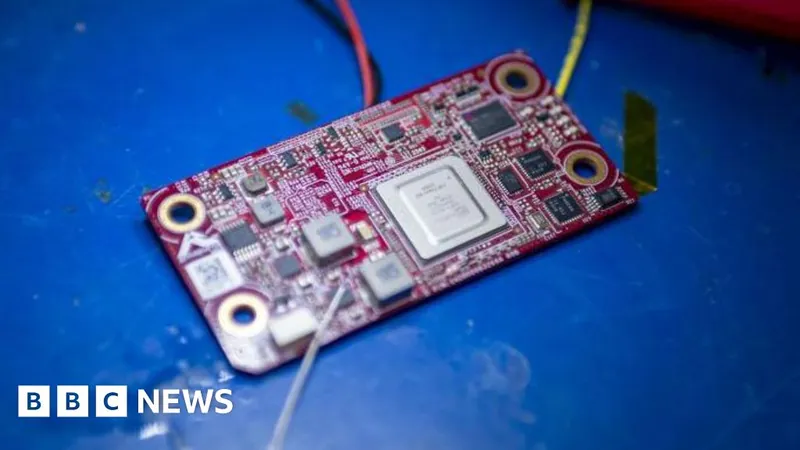
U.S. Faces Backlash as AI Chip Export Restrictions Become Law
2025-01-14
Author: Wai
Overview
In a bold move that has generated significant controversy, the United States is tightening its grip on the export of advanced artificial intelligence (AI) chips and technology, extending restrictions beyond its traditional adversaries to a broader array of countries. These regulations are driven by a desire to ensure that "the world's AI runs on American rails" and to prevent potentially dangerous entities from utilizing these technologies to threaten national security and global stability.
Exemptions for Allies
The Biden administration has declared that 18 of its closest allies, including the United Kingdom, will be exempt from these new restrictions, prompting a complex web of political and economic implications. The announcement comes just days before President Joe Biden is set to leave office and has sparked fierce backlash from some of America's leading tech companies, who argue that such measures could inadvertently empower competitors rather than safeguard American interests.
Industry Reactions
Nvidia, a prominent chip manufacturer heavily impacted by these proposed regulations, has expressed strong opposition, arguing that the restrictions will do little to mitigate threats but will significantly weaken America's competitive edge in the global marketplace. The company asserts that by attempting to control market dynamics, the U.S. government risks jeopardizing the very innovation that has historically distinguished it from other nations.
Regulatory Details
The new rules, which will undergo a 120-day comment period before taking effect, aim to set ceilings on the export of advanced technologies to various countries while requiring U.S. firms to obtain authorization for sales. Notably, exports to already sanctioned nations like China, Russia, and Iran will continue to face stringent limitations. However, orders below a specified computing threshold—such as many transactions conducted by universities or healthcare organizations—will be exempt from needing licenses.
Negotiation Provisions
In a noteworthy twist, the regulations also introduce provisions for foreign governments seeking to negotiate agreements that could lead to reduced restrictions and greater access to American technologies. This strategy raises questions about the balance of power within the global tech landscape as the U.S. seeks to maintain its dominance.
Future Implications
Looking ahead, experts suggest that these regulations may not withstand the test of time, particularly with the anticipated shift in leadership linked to Donald Trump's presidency. Analysts predict Trump, who has made innovation a cornerstone of his agenda, may roll back many of Biden’s AI policies, potentially catalyzing a new race for technological supremacy.



 Brasil (PT)
Brasil (PT)
 Canada (EN)
Canada (EN)
 Chile (ES)
Chile (ES)
 Česko (CS)
Česko (CS)
 대한민국 (KO)
대한민국 (KO)
 España (ES)
España (ES)
 France (FR)
France (FR)
 Hong Kong (EN)
Hong Kong (EN)
 Italia (IT)
Italia (IT)
 日本 (JA)
日本 (JA)
 Magyarország (HU)
Magyarország (HU)
 Norge (NO)
Norge (NO)
 Polska (PL)
Polska (PL)
 Schweiz (DE)
Schweiz (DE)
 Singapore (EN)
Singapore (EN)
 Sverige (SV)
Sverige (SV)
 Suomi (FI)
Suomi (FI)
 Türkiye (TR)
Türkiye (TR)
 الإمارات العربية المتحدة (AR)
الإمارات العربية المتحدة (AR)